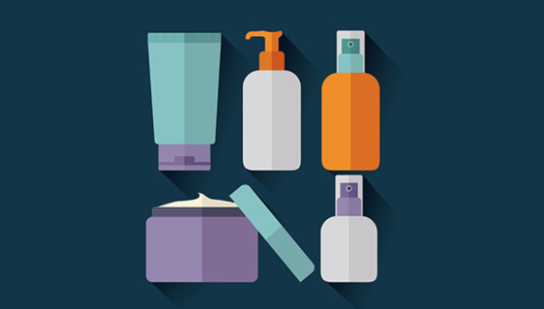What are Fraudulent Cosmetics and “Anti-Aging” Products
Fraudulent cosmetics and “anti-aging” products refer counterfeit cosmetics that are often sold on the Internet.

Because more and more people are doing there shopping online, there has been a significant increase in sales of fraudulent cosmetics, particularly in the US.
According to the Federal Bureau of Investigations (FBI), government and the beauty industry studies have found that counterfeit “anti-aging” products can contain dangerous ingredients such as arsenic, beryllium cadmium, high levels of aluminum, and dangerous levels of bacteria from sources such as urine. It’s not impossible for such ingredients to cause skin conditions like acne or psoriasis.
Fraudulent cosmetics can include fake anti-aging products, as well as expensive brand counterfeits. And the biggest issue with such cosmetics is the questionable ingredients. Because they are not sold through legitimate means, such cosmetics are not regulated, which means they can use cheap ingredients that could be hazardous to one’s health.
Nowadays, it can be difficult to avoid accidentally buying fraudulent cosmetics with how widespread the problem is. However, there are a couple of ways to recognise that you may be purchasing fake cosmetics.
How to avoid Fraudulent Cosmetics and “Anti-Aging” Products
- Be wary of “breakthrough” products that promise amazing results after a few uses.
Counterfeit cosmetic vendors often advertise their fraudulent items as breakthrough cosmetics that will greatly improve skin conditions in a matter of days. Keep in mind that if such claims were actually true, everyone would have problem-free skin.
- If possible, request more information about the product and do not be afraid to ask questions.
Unless the vendor provides extensive information about ingredients, potential adverse effects, etc., contact them to ask for more extensive information.
- Keep in mind that testimonies can be forged, and celebrity endorsements are often misleading.
It’s always recommended to check product reviews before purchasing. However, you should not blindly trust them as they can easily be faked. Especially if the reviews are all 5-star ratings with no or overly positive comments. For best reviews, check outside the store’s website. There are many review websites that you could use instead.
- Do not believe “miracle cures” for skin issues like acne and rashes.
Skin problems are often difficult to manage and cannot be cured with short-term solutions or the so-called miracle cures. If you encounter cosmetics that will supposedly completely heal problematic skin, be wary and do extensive research before making a purchase. Do not trust just one source, look into reviews, check whether the manufacturer is trustworthy, check the ingredients, etc.
- Always carefully check ingredients, both before buying online and after the product arrives.
If you buy cosmetics online, carefully check the list of ingredients. If you’re not familiar with what to look for, we recommend looking up a list of toxic or otherwise harmful ingredients that can be found in cheap cosmetics. Once the items arrive, check the packaging to make sure the ingredients are the same.
- Be careful of products claiming to have no side effects.
Cosmetic companies are strictly regulated and must inform consumers about possible side effects of using a product. If a seller claims that their products will have no side effects, be cautious.
- Deals that seem too good to be true usually are just that.
If you find luxury or other expensive cosmetics sold for cheap or with big discounts, it’s more than likely a scam, unless it’s a reputable online store. Advertisements for these fake cosmetics can be encountered on social media promoted posts, various groups, pages, posts, and comments. Luxury cosmetics are called luxury for a reason, if they’re sold too cheap, you’re likely buying counterfeit versions with questionable ingredients. And remember, if something seems too good to be true, it’s probably because it is.